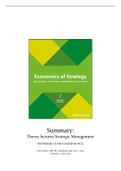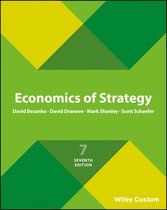Summary
Summary Strategic Management Theory Lectures ('21 - '22)
- Course
- Institution
- Book
Comprehensive summary of the lectures for the course Strategic Management. Suitable for students International Business. Given by Elvira Haezendonck at the Vrije Universiteit Brussel in the academic year .
[Show more]




